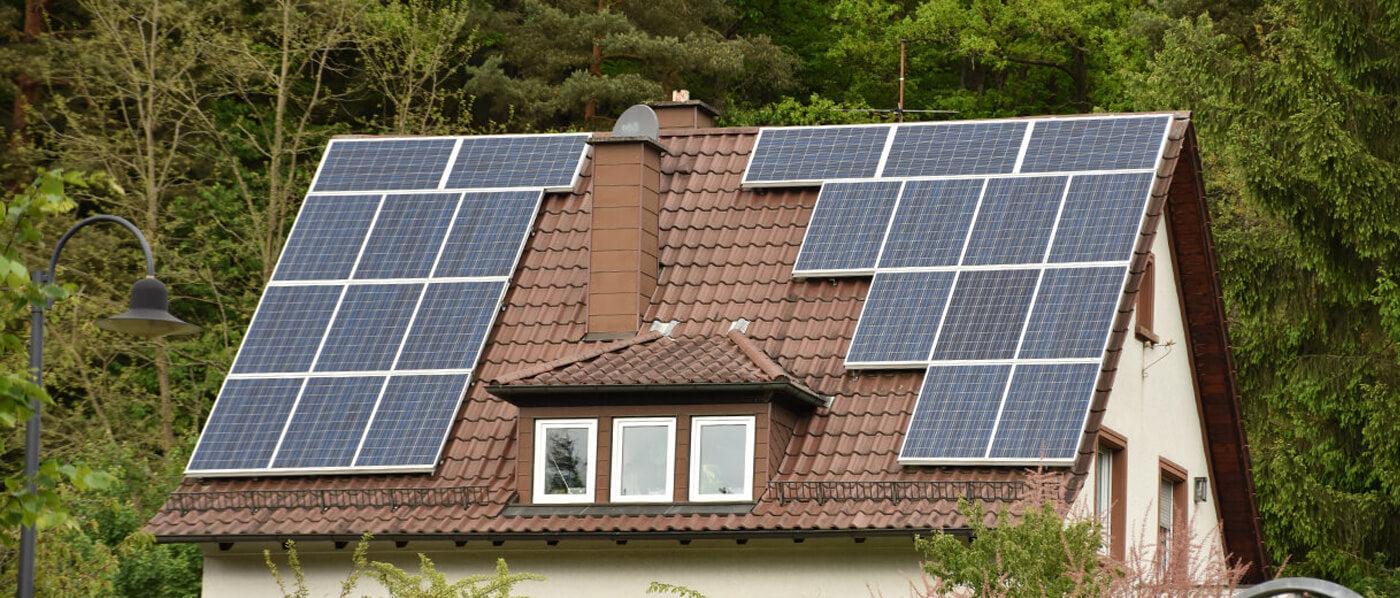Imagine living in a place where every beam of sunlight lights up your surroundings and powers your home. This means living off the grid with solar power— a lifestyle that stands for independence, living in harmony with nature, and being sustainable. This guide will share some off-grid solar panel installation tips and important knowledge about using solar energy for off-grid living and offer useful insights in other situations.out using solar energy for off-grid living and offer useful insights in other situations.
Why Is Solar Perfect for Off-grid Living?
Solar power converts sunlight directly into electricity. This process utilizes solar cells, or photovoltaic cells, that absorb photons and release electrons, thus generating electric current. This direct and clean conversion of sunlight makes solar power particularly suited for off-grid living for several key reasons:
Reliability
Solar systems provide consistent energy as long as there is sunlight, which is almost daily in many parts of the world.
Sustainability
Solar energy is a renewable resource that significantly reduces one's carbon footprint and environmental impact.
Cost-effectiveness
Following the initial investment, ongoing expenses are substantially lower compared to conventional power sources, making solar a financially sound long-term option.
Independence
Solar energy offers complete autonomy from utility companies, freeing off-grid dwellers from the unpredictability of utility prices and availability.
Choosing Your Solar Solution
Selecting the right solar power setup involves understanding the different systems available and determining which best meets your specific needs:
- PV (Photovoltaic) Systems:These convert sunlight directly into electricity and are most suitable for residential off-grid systems.
- Solar Thermal Systems:These systems capture heat from the sun, commonly used for water and space heating.
The choice between these systems depends on your lifestyle, location, and energy requirements. A small, energy-efficient home might only need a modest PV system, whereas a larger household with greater energy demands might require a more comprehensive system with a robust set of solar panels and batteries.
Components of an Off-Grid Solar System
To effectively harness the sun's power, a solar system comprises several key components:
- Solar Panels: The primary function of solar panels is to capture sunlight and convert it into electricity.
- Batteries: Batteries (especially lithium-ion batteries) store electricity for use during non-sunny periods, ensuring a constant energy supply. If you want more information about lithium batteries, read our blog about it.
- Charge Controller: This device protects batteries from overcharging and excessive discharge, both of which can significantly shorten battery life.
- Inverter: The off-grid inverter converts direct current (DC) from the solar panels and batteries into alternating current (AC), the form of electricity used by most household appliances.
- Mounting System: A proper mounting system ensures that solar panels are securely and optimally positioned to maximize sunlight exposure.
Planning Your Off-Grid Solar Power System
Careful planning is crucial to ensure reliability and efficiency when designing an off-grid solar power system. Understanding your energy needs, selecting the right components, and considering environmental factors are all essential steps to maximize the benefits of solar technology. This approach promotes sustainability and provides independence from traditional power grids, offering a continuous, clean energy supply in remote or rural areas.
Assessing Your Energy Needs
Begin by understanding how much energy you typically consume. Look at the energy requirements of your appliances and consider how often you use them. This will help in sizing a system that accurately meets your needs without excess. The Appliance Energy Use Chart by Silicon Valley Power offers information on estimated energy usage and costs for various household appliances, assisting users in understanding their energy consumption.
Importance of Energy Efficiency
Using energy-efficient appliances and light bulbs can significantly reduce your overall energy needs. This allows for a smaller, less expensive solar setup and increases the overall efficiency of your off-grid system.
Considering Location’s Solar Potential
How much sunlight your location receives is crucial in planning a solar installation. Factors such as local climate, seasonal variations, and daily weather patterns play significant roles. Find out how much sunlight your area gets here.
Tips for Optimizing System Performance
Optimizing the performance of your solar system involves more than just technical installations. It includes regular cleaning and maintenance of panels, strategic positioning to avoid shade, and proper angling to capture the maximum amount of sunlight throughout the year.

Planning for Solar Success
A realistic assessment of your energy needs forms the foundation for a successful off-grid solar system. Implementing energy-efficient practices reduces the burden on your system and minimizes costs. When planning your system, think critically about the size and scalability to ensure it can adapt to any future changes in your energy consumption.
Solar Maintenance and Safety
Maintaining a solar system is relatively straightforward but crucial for longevity and efficiency. Regular tasks should include cleaning the solar panels to remove dirt and debris and checking all connections for corrosion or damage. Safety is paramount when dealing with electrical systems, especially to prevent any risk of electrical fires or shocks. Professional assistance is recommended for more complex maintenance or any modifications to the electrical components of the system.

Solar Power as a Path to Off-Grid Living
Adopting solar power for off-grid living is not merely about energy autonomy—it's about embracing a sustainable lifestyle that aligns with a commitment to environmental stewardship and personal independence. Whether you are seeking to disconnect completely from municipal services or trying to reduce your ecological footprint, solar power offers a viable and empowering path.
By understanding the basics of solar technology, the components of a solar system, and the considerations necessary for planning and maintaining a system, you can take informed steps toward achieving your off-grid living goals. This journey to solar-powered living is not just a technical shift but a transformative lifestyle choice that fosters long-term sustainability and resilience.

